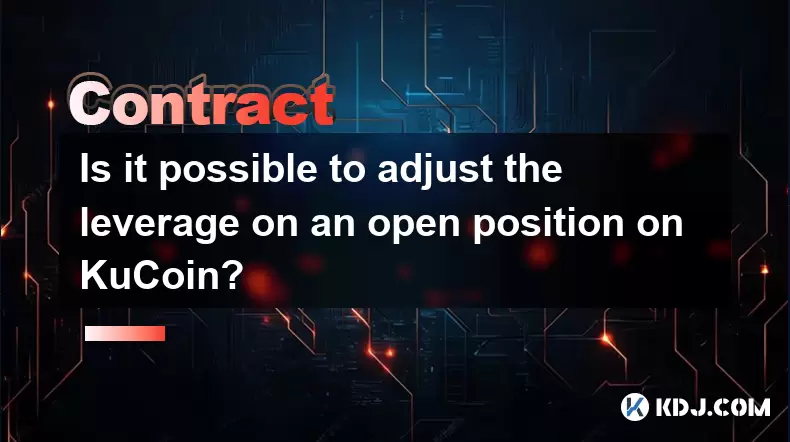-
 Bitcoin
Bitcoin $117700
-1.00% -
 Ethereum
Ethereum $4458
-3.91% -
 XRP
XRP $3.119
0.14% -
 Tether USDt
Tether USDt $1.001
-0.02% -
 BNB
BNB $836.6
-1.56% -
 Solana
Solana $189.5
-3.90% -
 USDC
USDC $0.9998
-0.02% -
 Dogecoin
Dogecoin $0.2335
1.29% -
 Cardano
Cardano $0.9642
1.51% -
 TRON
TRON $0.3539
-1.19% -
 Hyperliquid
Hyperliquid $47.41
-1.84% -
 Chainlink
Chainlink $21.92
-3.28% -
 Stellar
Stellar $0.4286
-0.23% -
 Sui
Sui $3.724
-3.29% -
 Bitcoin Cash
Bitcoin Cash $594.8
-0.78% -
 Ethena USDe
Ethena USDe $1.001
0.04% -
 Hedera
Hedera $0.2501
-2.06% -
 Avalanche
Avalanche $23.96
-4.87% -
 Litecoin
Litecoin $119.0
-2.32% -
 Toncoin
Toncoin $3.473
0.82% -
 UNUS SED LEO
UNUS SED LEO $9.596
0.17% -
 Shiba Inu
Shiba Inu $0.00001301
-0.39% -
 Uniswap
Uniswap $11.03
-0.25% -
 Polkadot
Polkadot $3.935
-2.62% -
 Dai
Dai $1.000
0.01% -
 Bitget Token
Bitget Token $4.564
-1.76% -
 Cronos
Cronos $0.1512
-4.11% -
 Ethena
Ethena $0.7306
-1.09% -
 Pepe
Pepe $0.00001087
-2.68% -
 Aave
Aave $300.2
-4.00%
What is the difference between leveraged tokens and contract trading?
Leveraged tokens offer simplified leverage, while contract trading provides flexibility, higher return potential, and advanced trading options, but requires active management and a deeper understanding of trading.
Dec 03, 2024 at 12:37 pm

Leveraged Tokens vs. Contract Trading: A Comprehensive Comparison
Introduction
Leveraged tokens and contract trading are both advanced financial instruments that enable traders to amplify their returns in the blockchain space. While they share certain similarities, there are also key distinctions between the two that traders should be aware of.
Understanding Leveraged Tokens
- Definition: Leveraged tokens are ERC-20 tokens that provide leveraged exposure to the underlying asset, allowing traders to amplify their profits.
Key Features:
- Leverage: Offer higher leverage than spot trading, typically ranging from 3x to 10x.
- Long and Short Positions: Enable traders to take both long (bet on price increase) and short (bet on price decrease) positions.
- Passive Management: Unlike contract trading, leveraged tokens are passively managed and do not require active trading.
Benefits of Leveraged Tokens:
- Convenience: Easy to trade, no need for specialized trading knowledge or platforms.
- Leverage: Potential for higher profits due to higher leverage.
- Simplifies Trading: Allows traders to gain leveraged exposure without the complexities of contract trading.
Limitations of Leveraged Tokens:
- High Volatility: Leverage can amplify both profits and losses, increasing the risk of large losses.
- Rebalancing Fees: Regular adjustments to maintain leverage levels can incur fees that reduce returns.
- Price Deviations: Leveraged tokens may deviate from the underlying asset's price due to rebalancing mechanisms.
Understanding Contract Trading
- Definition: Contract trading involves the trading of standardized contracts that derive their value from the underlying asset.
Key Features:
- Margin Trading: Requires the use of leverage, which is typically adjustable.
- Active Management: Requires active trading and monitoring to manage risk and positions.
- Variety of Contracts: Includes futures, options, and perpetual swaps, allowing for different trading strategies.
Benefits of Contract Trading:
- Flexibility: Provides greater flexibility and control over trades with customizable leverage, expiration dates, and contract types.
- Higher Return Potential: Higher potential for profits due to the ability to adjust leverage.
- More Trading Options: Offers a wider range of trading strategies and risk management tools.
Limitations of Contract Trading:
- Complexity: Requires a deeper understanding of trading principles and technical analysis.
- Active Management: Demands constant monitoring and active trading to avoid losses.
- Higher Risk: Leverage can lead to significant financial losses if not managed properly.
Comparison of Leveraged Tokens and Contract Trading
1. Leverage:
Leveraged tokens generally offer fixed leverage, typically ranging from 3x to 10x, while contract trading provides more flexibility with adjustable leverage.
2. Trading Mechanism:
Leveraged tokens are passively traded and rebalanced, while contract trading involves active participation in the market to open, manage, and close positions.
3. Risk Profile:
Leveraged tokens carry a higher risk due to constant leverage and price deviations, while contract trading offers more granular control over risk through adjustable leverage and stop-loss orders.
4. Suitable for:
Leveraged tokens are suitable for short-term traders seeking leveraged exposure with minimal trading knowledge, while contract trading is preferred by experienced traders who have a deeper understanding of trading strategies and risk management.
Conclusion:
Leveraged tokens and contract trading are distinct financial instruments with different features and risk profiles. While leveraged tokens offer simplicity and leverage, contract trading provides greater flexibility, return potential, and trading options. Traders should carefully evaluate their risk tolerance, trading knowledge, and investment goals before choosing the appropriate instrument.
Disclaimer:info@kdj.com
The information provided is not trading advice. kdj.com does not assume any responsibility for any investments made based on the information provided in this article. Cryptocurrencies are highly volatile and it is highly recommended that you invest with caution after thorough research!
If you believe that the content used on this website infringes your copyright, please contact us immediately (info@kdj.com) and we will delete it promptly.
- Kazakhstan's Crypto Leap: Bitcoin ETF and Central Asia's Digital Finance Future
- 2025-08-13 12:45:19
- BlockDAG Presale Blazes Past $371M: Fundraising Frenzy Fuels Crypto Sensation
- 2025-08-13 13:05:21
- Meme Coins: Chasing the 2025 Surge – Which Will Moonshot?
- 2025-08-13 10:25:23
- Bitcoin's Wild Ride: Rally, Pullback, and What's Next
- 2025-08-13 10:25:23
- Bitcoin, Bitmax, and Institutional Demand: A New Era of Crypto Investment
- 2025-08-13 10:45:12
- Solana, ROAM, and Airdrops: What's the Buzz in 2025?
- 2025-08-13 11:35:13
Related knowledge

Is it possible to adjust the leverage on an open position on KuCoin?
Aug 09,2025 at 08:21pm
Understanding Leverage in KuCoin Futures TradingLeverage in KuCoin Futures allows traders to amplify their exposure to price movements by borrowing fu...

What cryptocurrencies are supported as collateral on KuCoin Futures?
Aug 11,2025 at 04:21am
Overview of KuCoin Futures and Collateral MechanismKuCoin Futures is a derivatives trading platform that allows users to trade perpetual and delivery ...

What is the difference between realized and unrealized PNL on KuCoin?
Aug 09,2025 at 01:49am
Understanding Realized and Unrealized PNL on KuCoinWhen trading on KuCoin, especially in futures and perpetual contracts, understanding the distinctio...

What different order types are available to use on KuCoin Futures?
Aug 13,2025 at 11:35am
Understanding Order Types on KuCoin FuturesKuCoin Futures offers a comprehensive range of order types to accommodate different trading strategies and ...

How does KuCoin Futures compare against Binance Futures in terms of features?
Aug 09,2025 at 03:22am
Trading Interface and User ExperienceThe trading interface is a critical component when comparing KuCoin Futures and Binance Futures, as it directly i...

How can I manage risk when applying high leverage on KuCoin?
Aug 13,2025 at 11:35am
Understanding High Leverage and Its Implications on KuCoinHigh leverage in cryptocurrency trading allows users to control larger positions with a rela...

Is it possible to adjust the leverage on an open position on KuCoin?
Aug 09,2025 at 08:21pm
Understanding Leverage in KuCoin Futures TradingLeverage in KuCoin Futures allows traders to amplify their exposure to price movements by borrowing fu...

What cryptocurrencies are supported as collateral on KuCoin Futures?
Aug 11,2025 at 04:21am
Overview of KuCoin Futures and Collateral MechanismKuCoin Futures is a derivatives trading platform that allows users to trade perpetual and delivery ...

What is the difference between realized and unrealized PNL on KuCoin?
Aug 09,2025 at 01:49am
Understanding Realized and Unrealized PNL on KuCoinWhen trading on KuCoin, especially in futures and perpetual contracts, understanding the distinctio...

What different order types are available to use on KuCoin Futures?
Aug 13,2025 at 11:35am
Understanding Order Types on KuCoin FuturesKuCoin Futures offers a comprehensive range of order types to accommodate different trading strategies and ...

How does KuCoin Futures compare against Binance Futures in terms of features?
Aug 09,2025 at 03:22am
Trading Interface and User ExperienceThe trading interface is a critical component when comparing KuCoin Futures and Binance Futures, as it directly i...

How can I manage risk when applying high leverage on KuCoin?
Aug 13,2025 at 11:35am
Understanding High Leverage and Its Implications on KuCoinHigh leverage in cryptocurrency trading allows users to control larger positions with a rela...
See all articles

























































































